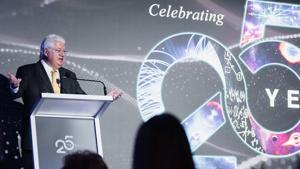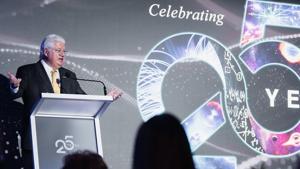Education
Canadian Universities Urged to Prioritize Merit Over DEI

In a critical assessment of the current landscape of Canadian higher education, associate professor of economics at the University of Waterloo, Mikko Packalen, has called for a shift away from the emphasis on diversity, equity, and inclusion (DEI). He argues that universities need to refocus on their foundational goals of education and discovery. This opinion reflects a growing concern that Canadian institutions have strayed from their core missions, largely due to federal policies.
The changes prompted by the Canadian federal granting councils have woven DEI principles into the fabric of academic funding and evaluation. These policies now include mandatory self-identification questionnaires for applicants and reviewers, compulsory bias-training modules, and equity targets that link eligibility for funding to identity-based criteria. According to Packalen, this trend prioritizes ideology over merit, undermining the very foundation of scientific inquiry.
Packalen points to the influence of international trends, particularly in the United States, where some elite universities are reassessing their commitment to DEI. Notably, Dartmouth College President Sian Beilock has publicly emphasized the need for higher education to realign with its educational mission. She stated, “Higher education has a responsibility to reform from within. I think we lost sight of what our mission was. We’re educational institutions. We’re not political institutions. We’re not social advocacy organizations.” Such statements highlight a significant departure from the prevailing ideologies influencing Canadian universities.
The ramifications of this ideological shift are broad. Packalen notes that many employers have begun to question the value of university degrees, as courses increasingly incorporate themes of redistribution rather than focusing solely on academic rigor. This skepticism affects students, who may find that their qualifications do not translate into meaningful job opportunities.
The discourse surrounding DEI has also reached prominent leaders in the U.S. academic landscape. Sally Kornbluth, President of Massachusetts Institute of Technology (MIT), criticized the notion of linking funding to ideological commitments. She articulated that “scientific funding should be based on scientific merit alone,” reinforcing the idea that true academic excellence thrives in an environment free from ideological constraints.
Canadian universities and government agencies continue to embrace DEI frameworks, often leading to a reduction in trust among the public. For instance, the Canada Research Chairs program, which is one of the country’s most prestigious funding tracks, frequently limits eligibility based on identity categories. This practice raises concerns about the quality of research and education, as it diverts focus from scientific merit.
As the global landscape shifts, the urgency for Canadian institutions to adapt becomes clear. The House of Commons Standing Committee on Science and Research has been examining the practices of funding agencies, with DEI attracting notable attention. Critics argue that there is a lack of substantial evidence supporting the notion that DEI initiatives enhance scientific progress or educational outcomes.
The potential for artificial intelligence (AI) to drive growth in productivity and benefit society is another area where DEI policies may hinder progress. Packalen warns that an overemphasis on equity may obstruct the ability of universities and funding agencies to capitalize on the opportunities presented by AI technologies.
Amid these discussions, there are indications that the tide may be turning against DEI in Canada. The ongoing hearings by the House of Commons could signal a shift toward prioritizing excellence and merit in academic funding.
In conclusion, the messages from leading U.S. institutions are clear: funding for research and education should prioritize merit over ideological commitments. Canada’s current framework, which often emphasizes identity over merit, stands in contrast to this principle. For Canadian universities to thrive in an increasingly competitive global landscape, a refocus on education and discovery is essential.
-

 World3 months ago
World3 months agoScientists Unearth Ancient Antarctic Ice to Unlock Climate Secrets
-

 Entertainment3 months ago
Entertainment3 months agoTrump and McCormick to Announce $70 Billion Energy Investments
-

 Lifestyle3 months ago
Lifestyle3 months agoTransLink Launches Food Truck Program to Boost Revenue in Vancouver
-

 Science3 months ago
Science3 months agoFour Astronauts Return to Earth After International Space Station Mission
-

 Technology2 months ago
Technology2 months agoApple Notes Enhances Functionality with Markdown Support in macOS 26
-

 Top Stories1 week ago
Top Stories1 week agoUrgent Update: Fatal Crash on Highway 99 Claims Life of Pitt Meadows Man
-

 Sports3 months ago
Sports3 months agoSearch Underway for Missing Hunter Amid Hokkaido Bear Emergency
-

 Politics3 months ago
Politics3 months agoUkrainian Tennis Star Elina Svitolina Faces Death Threats Online
-

 Technology3 months ago
Technology3 months agoFrosthaven Launches Early Access on July 31, 2025
-

 Politics3 months ago
Politics3 months agoCarney Engages First Nations Leaders at Development Law Summit
-

 Entertainment3 months ago
Entertainment3 months agoCalgary Theatre Troupe Revives Magic at Winnipeg Fringe Festival
-

 Politics2 weeks ago
Politics2 weeks agoShutdown Reflects Democratic Struggles Amid Economic Concerns





















